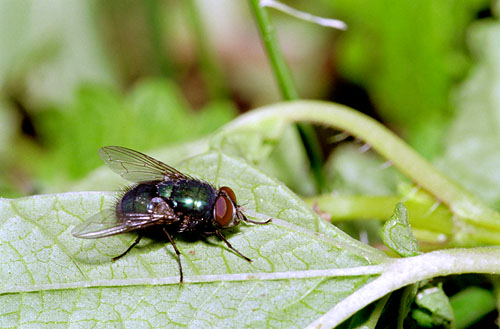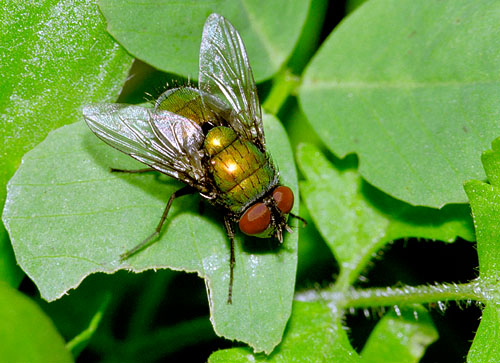Diptera.info :: Identification queries :: Diptera (adults)
Who is here? 1 guest(s)
|
Lucilia sp.
|
|
| digitalg |
Posted on 05-08-2006 16:39
|
|
Member Location: Portugal Posts: 51 Joined: 31.07.06 |
Hi! What I've learned so far let's me know that these two are probably Lucilia specimens. I'm uploading them together because what I wanted to know is is there are easy observable characteristics that can tell us if we have or not different species, even if we don't know the species for sure. This first one I've seen people saying it Lucilia caeser, sorry for the distance of the photo! digitalg attached the following image:  [49.76Kb] Armando Fraz„o http://bugs.digit... |
| digitalg |
Posted on 05-08-2006 16:45
|
|
Member Location: Portugal Posts: 51 Joined: 31.07.06 |
And this one looks to me like a different Lucilia. Could it be the same as this one: http://www.dipter...ad_id=2769 The photo above on this thread was taken in may 2003 in a crop field of the centre of Portugal, the one on this post september 2002 was in a city garden in Lisbon. The size of both specimens was about 11-12mm digitalg attached the following image:  [68.09Kb] Armando Fraz„o http://bugs.digit... |
| Tony Irwin |
Posted on 05-08-2006 18:37
|
|
Member Location: Norwich, England Posts: 7327 Joined: 19.11.04 |
Hi Armando I'd say they are both Lucilia males, and as you can see the lower male has a broader frons than the one in the top photo. It also has three post-sutural acrostichals (many Lucilia lack the acrostichal pair immediately behind the suture - like your species in the link above). So they are different species. However I hesitate to name Lucilia in the field (or from photographs). Someone with a better knowledge of the Portugese or Spanish fauna maybe able to help. Good luck! 
Edited by Tony Irwin on 05-08-2006 18:40 Tony ---------- Tony Irwin |
|
|
|
| digitalg |
Posted on 06-08-2006 16:06
|
|
Member Location: Portugal Posts: 51 Joined: 31.07.06 |
Well ... I understood what you meant to say ... right after looking up the meaning of acrostichal  Ok, I did have some clue to what we were talking about, it's just that my book does not go into so much detail on namning every bristle  But knowing the genus, and knowing I have 3 different species is already more than I thought would be possible. And I'm done with calliphorids 'for sure' of my archive. But I still have at least another candidate ... next post. Thank you a lot! 
Armando Fraz„o http://bugs.digit... |
| Jump to Forum: |













